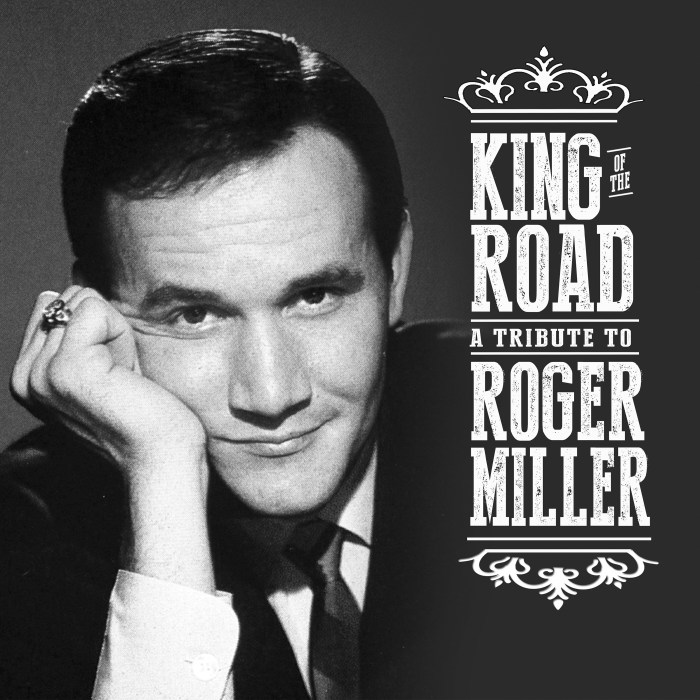From the open road to the open internet, the “King of the Road” has always been a symbol of freedom, adventure, and a desire to break free from the ordinary. But who exactly is the “King of the Road” and how has this archetype evolved over time?
This journey takes us from the dusty highways of the Beat Generation to the digital landscapes of today, exploring how the “King of the Road” has been portrayed in literature, music, film, and popular culture. We’ll uncover the common themes and tropes associated with this archetype, and how it continues to resonate with audiences in a rapidly changing world.
The Evolution of the “King of the Road”
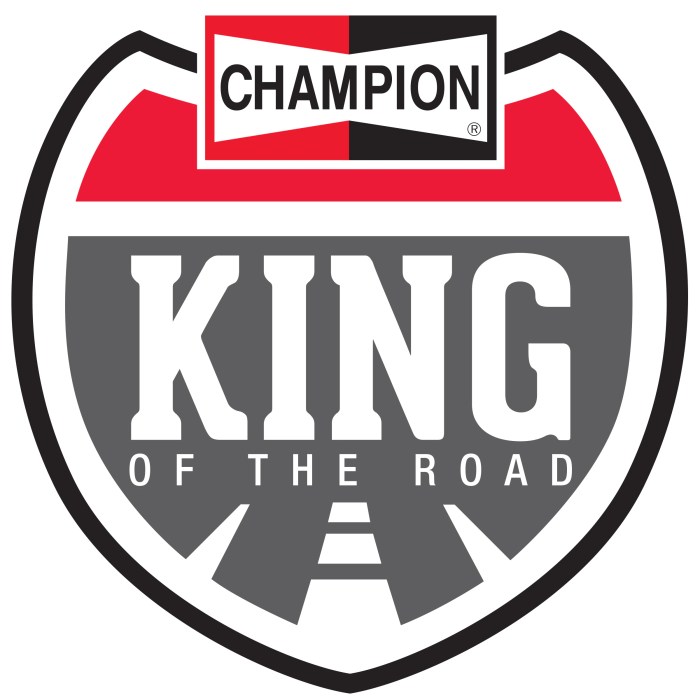
The phrase “King of the Road” has resonated throughout history, capturing the spirit of freedom, adventure, and independence. From its humble beginnings to its modern interpretations, the “King of the Road” has evolved alongside societal shifts and technological advancements. This journey reveals how our cultural perception of this iconic figure has transformed, reflecting changing values and aspirations.
The “King of the Road” in Literature
The archetype of the “King of the Road” can be traced back to ancient literature, where wandering heroes and outlaws often embodied the spirit of freedom and independence. The epic poem
- The Odyssey* by Homer features Odysseus, a cunning and resourceful hero who embarks on a long and arduous journey home, showcasing the themes of resilience and determination. In the American context, the “King of the Road” is often associated with the frontier spirit of the Wild West, as depicted in classic novels like
- The Adventures of Huckleberry Finn* by Mark Twain. Huckleberry Finn, a mischievous and rebellious boy who escapes societal constraints, embodies the desire for adventure and self-discovery.
The “King of the Road” in Music
The “King of the Road” has found its most prominent voice in popular music. Country music, in particular, has embraced the figure of the wandering troubadour, often depicting him as a lonely but resilient soul seeking solace and adventure on the open road.
The iconic song “King of the Road” by Roger Miller, released in 1964, solidified the image of the “King of the Road” as a carefree, independent spirit. The song’s lyrics, filled with whimsical tales of travel and adventure, captured the imagination of audiences worldwide, further solidifying the “King of the Road” as a cultural icon.
You know that feeling when you’re cruising down the highway, windows down, blasting “King of the Road” and feeling like you’re on top of the world? Well, if you’re looking for a way to channel that same sense of freedom and rebellious spirit into your creative side, check out Horror Toys Creepy Kawaii Coloring Book Spooky and Cute Nightmare Bears Chibi Dolls Pastel Goth Unicorns and More Gothic Anime Cartoon Style Art for Adults and Teens Mindfulness and Relaxation.
It’s like a coloring book for your inner rebel, full of creepy-cute characters and dark and dreamy designs. So grab your crayons and let your inner “King of the Road” loose!
Other musicians, such as Johnny Cash and Willie Nelson, have also contributed to the musical legacy of the “King of the Road” with their own interpretations of the theme of wandering and freedom.
The “King of the Road” in Film
Film has provided a visual platform for the “King of the Road” archetype, allowing audiences to connect with the characters on a deeper level. Films like
- Easy Rider* (1969), starring Peter Fonda and Dennis Hopper, depicted the “King of the Road” as a countercultural rebel, challenging societal norms and embracing a life on the road. The film’s success helped to solidify the “King of the Road” as a symbol of freedom and rebellion, resonating with audiences who were questioning traditional values and seeking alternative lifestyles.
Other films, such as
- Thelma & Louise* (1991) and
- Nomadland* (2020), have explored the themes of freedom, adventure, and self-discovery through the lens of the “King of the Road” archetype, showcasing the evolution of the “King of the Road” as a figure who is not only seeking freedom but also seeking meaning and purpose in life.
The Changing Cultural Perception of the “King of the Road”
The cultural perception of the “King of the Road” has undergone significant shifts over time, reflecting societal changes and values. In the early 20th century, the “King of the Road” was often portrayed as a rugged individualist, seeking adventure and escape from the constraints of modern society.
This perception was fueled by the rise of the automobile and the romanticism of the open road. However, as society evolved, the “King of the Road” began to be associated with countercultural movements and the rejection of traditional values.
The “King of the Road” became a symbol of rebellion and freedom, challenging the status quo and embracing alternative lifestyles. In recent years, the “King of the Road” has taken on a more nuanced and complex meaning. While the desire for freedom and adventure remains, the “King of the Road” is also seen as a figure who is seeking meaning and purpose in life, often through travel and exploration.
This shift reflects a growing awareness of the importance of personal growth and self-discovery in a world that is increasingly interconnected and complex.
You know that classic “King of the Road” vibe? Like, you’re cruisin’ in your beat-up car, just you and the open road, maybe a guitar in the passenger seat? Well, if you want to add some serious fire to your guitar skills and really level up your blues playing, check out Beyond Pentatonic Blues Guitar Master Intermediate to Advanced Blues Lead Guitar Concepts Licks Scales & Theory for More Sophisticated Soloing and Improvisation.
You’ll be shredding like a blues legend in no time, and that’ll make your next road trip even more epic. Just imagine the sweet blues riffs echoing down the highway as you roll down the windows and feel the wind in your hair.
Now that’s a real “King of the Road” moment!
The “King of the Road” in Popular Culture
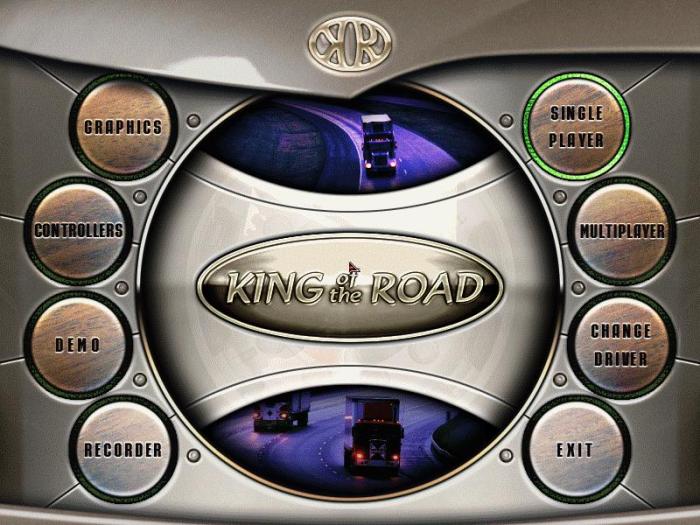
The “King of the Road” archetype has transcended its musical origins to become a pervasive figure in popular culture, representing a spirit of freedom, rebellion, and the allure of the open road. From iconic movie characters to legendary musicians, the “King of the Road” has captivated audiences for generations, embodying a unique blend of independence, wanderlust, and a touch of rugged individualism.
The “King of the Road” in Film
The “King of the Road” archetype has been portrayed in numerous films, often embodying a romanticized vision of life on the road, filled with adventure, self-discovery, and a rejection of societal norms.
- Jack Kerouac’s “On the Road” (1957), the novel that inspired a generation of beatniks, was adapted into a film in 2012, capturing the essence of the “King of the Road” with its depiction of Sal Paradise and Dean Moriarty, two young men who embark on a cross-country journey seeking freedom and self-expression.
- “Easy Rider” (1969), a landmark film of the counterculture movement, features Wyatt and Billy, two bikers who ride across America, challenging societal norms and embracing a life of freedom and rebellion. Their journey symbolizes the “King of the Road” archetype, representing a rejection of traditional values and a yearning for a more authentic existence.
- “Thelma & Louise” (1991), a feminist road movie, portrays two women who embark on a journey of liberation and self-discovery, escaping their mundane lives and embracing the freedom of the open road. Their story resonates with the “King of the Road” archetype, as they defy societal expectations and embrace their own destinies.
The “King of the Road” in Music
The “King of the Road” archetype has been a recurring theme in music, with artists across various genres exploring the themes of freedom, wanderlust, and the allure of the open road.
- “King of the Road” by Roger Miller (1964), a classic country song, tells the story of a drifter who embraces a life of freedom and independence, traveling from town to town, never staying in one place for too long. The song embodies the “King of the Road” archetype, with its lyrics celebrating the spirit of adventure and the rejection of conventional societal norms.
- “Born to Run” by Bruce Springsteen (1975), a rock anthem, captures the essence of the “King of the Road” with its themes of escaping a stifling existence and searching for freedom and adventure on the open road. The song’s powerful lyrics and Springsteen’s passionate vocals evoke a sense of yearning for a life beyond the confines of everyday routine.
- “The Highway” by The Band (1968), a folk-rock classic, explores the themes of escape, longing, and the allure of the open road, with lyrics that evoke a sense of yearning for a life beyond the confines of everyday routine. The song’s melancholic melody and poetic lyrics capture the essence of the “King of the Road” archetype, with its focus on the search for meaning and purpose beyond the boundaries of societal expectations.
The “King of the Road” in Literature
The “King of the Road” archetype has been a recurring theme in literature, with authors exploring the themes of freedom, rebellion, and the allure of the open road.
- “The Grapes of Wrath” by John Steinbeck (1939), a Pulitzer Prize-winning novel, portrays the Joad family’s journey across America during the Dust Bowl era, searching for a better life. Their journey embodies the “King of the Road” archetype, as they face hardship and adversity while seeking a sense of purpose and belonging.
- “The Catcher in the Rye” by J.D. Salinger (1951), a coming-of-age novel, features Holden Caulfield, a teenager who rebels against societal norms and seeks a more authentic existence. His journey through New York City embodies the “King of the Road” archetype, as he searches for meaning and connection in a world that seems superficial and insincere.
- “The Hitchhiker’s Guide to the Galaxy” by Douglas Adams (1979), a science fiction comedy, features Arthur Dent, a hapless Englishman who is forced to flee Earth after it is destroyed to make way for a hyperspace bypass. His journey through the galaxy embodies the “King of the Road” archetype, as he encounters a variety of strange and wonderful characters and experiences.
The “King of the Road” in Contemporary Media
The “King of the Road” archetype continues to influence contemporary media, with its themes of freedom, rebellion, and the allure of the open road resonating with audiences today.
- “Breaking Bad” (2008-2013), a critically acclaimed television series, features Walter White, a chemistry teacher who turns to cooking meth to secure his family’s financial future. His journey of transformation embodies the “King of the Road” archetype, as he breaks free from societal constraints and embraces a life of danger and excitement.
- “Mad Max: Fury Road” (2015), a post-apocalyptic action film, features Max Rockatansky, a lone warrior who traverses a desolate wasteland in search of survival. His journey embodies the “King of the Road” archetype, as he confronts a tyrannical regime and fights for freedom and justice.
- “The Walking Dead” (2010-present), a popular television series, features a group of survivors who journey through a zombie-infested world, seeking a safe haven and a new beginning. Their journey embodies the “King of the Road” archetype, as they face constant danger and adversity while striving to rebuild their lives and find hope in a world gone mad.
The “King of the Road” in the Modern World
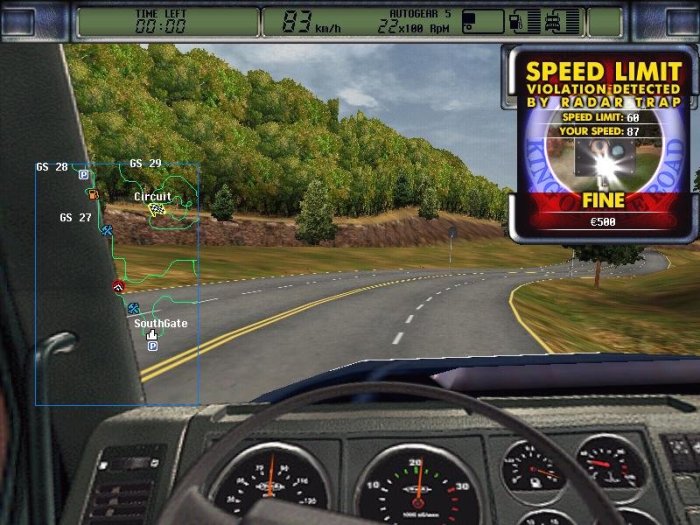
The “King of the Road” archetype, once a symbol of freedom and independence, faces a complex and evolving landscape in the modern world. While the allure of open roads and untethered exploration remains, the realities of globalization, technology, and societal shifts have fundamentally altered the concept.
You know that classic “King of the Road” vibe? That free spirit, always on the move, never settling down? Well, it’s like that but amplified a thousand times in the story of “The Boyzz,” a group of guys who took their own definition of freedom to the next level.
Check out their wild ride in TOO WILD TO TAME THE STORY OF THE BOYZZ , and you’ll see what I mean. It’s like a real-life “King of the Road” story, but way more intense, more unpredictable, and more downright crazy.
The “King of the Road” in a Technologically Advanced World
The rise of technology has undoubtedly impacted the “King of the Road” experience. Navigation apps like Google Maps and Waze have replaced the traditional road atlas and the need for intuition and local knowledge. The internet and social media platforms allow for constant connection and communication, blurring the lines between being on the road and being at home.
This has led to a debate about whether the “King of the Road” can truly exist in a world where technology constantly encroaches on solitude and self-reliance.
The “King of the Road” in a Globalized World
Globalization has also altered the “King of the Road” experience. The world is becoming increasingly interconnected, with people traveling and working across borders. This has led to a rise in “digital nomads,” who use technology to work remotely while traveling the world.
You know that classic “King of the Road” vibe? That feeling of freedom, adventure, and just hitting the open road? Well, you can get that same feeling with our new audiobook, Download And Listen Here , which takes you on a wild ride through the American heartland.
So buckle up, grab your headphones, and get ready for a road trip you won’t forget.
These individuals often embrace the freedom and flexibility associated with the “King of the Road” archetype, but they also face challenges such as visa restrictions, language barriers, and the need for constant internet access.
The “King of the Road” in a World of Social and Environmental Awareness
Modern society is increasingly conscious of social and environmental issues. The “King of the Road” archetype, often associated with individualism and a disregard for environmental impact, is being challenged by these concerns. Sustainable travel, responsible tourism, and eco-friendly practices are gaining traction, forcing a re-evaluation of the “King of the Road” ideal.
The Future of the “King of the Road”
The future of the “King of the Road” archetype is uncertain. It is likely that the archetype will continue to evolve, adapting to the changing world. Technology will likely play a more significant role, with autonomous vehicles and virtual reality experiences offering new ways to experience the open road.
However, the core values of freedom, exploration, and self-discovery that define the “King of the Road” are likely to remain relevant, even as the concept itself is redefined.
Book Review: “On the Road” by Jack Kerouac
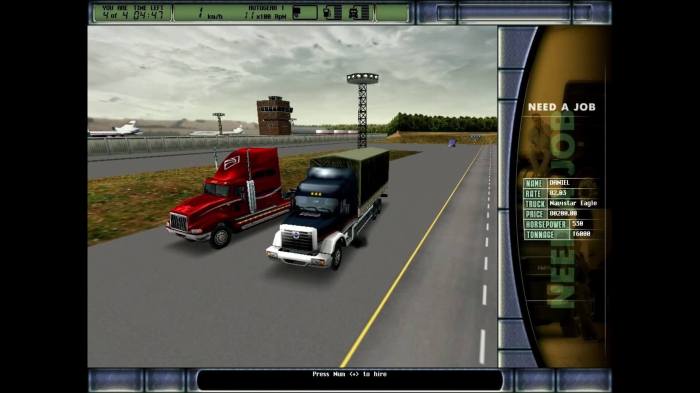
“On the Road,” Jack Kerouac’s seminal novel, is a captivating exploration of the Beat Generation’s search for meaning and self-discovery through relentless travel and a rejection of societal norms. It paints a vivid picture of the “King of the Road” archetype, a free-spirited individual who embraces spontaneity and rejects the constraints of traditional life.
The “King of the Road” in “On the Road”
The “King of the Road” in “On the Road” is embodied by the novel’s protagonists, Sal Paradise and Dean Moriarty. They embody the spirit of freedom and rebellion that characterized the Beat Generation. Their nomadic lifestyle, fueled by a thirst for adventure and a desire to escape the confines of conventional society, resonated with a generation yearning for authenticity and a break from the status quo.
The novel’s portrayal of the “King of the Road” as a restless, impulsive, and often reckless figure, fueled by a desire for self-expression and a rejection of conformity, became a powerful symbol for the Beat Generation’s search for individual identity and freedom.
Comparison with Other Literary Works
The “King of the Road” archetype in “On the Road” echoes similar themes found in other literary works, particularly those exploring the concept of the wanderer or the outsider. For instance, in “The Adventures of Huckleberry Finn” by Mark Twain, Huckleberry Finn’s journey down the Mississippi River mirrors the nomadic spirit of the “King of the Road.” Huckleberry’s desire to escape societal expectations and embrace freedom resonates with the Beat Generation’s rejection of conformity.
Similarly, in “The Catcher in the Rye” by J.D. Salinger, Holden Caulfield’s alienation and search for authenticity align with the “King of the Road” archetype. However, while “On the Road” emphasizes the pursuit of freedom through physical travel, “The Catcher in the Rye” focuses on internal struggles and a search for meaning within a society perceived as phony and superficial.
Significance of the “King of the Road” Theme
The “King of the Road” theme in “On the Road” transcends the specific context of the Beat Generation and holds relevance for contemporary readers. It speaks to a universal desire for freedom, self-discovery, and a rejection of societal constraints. In a world increasingly defined by technology and globalization, the yearning for authentic experiences and a sense of individual agency resonates deeply.
The novel’s exploration of the “King of the Road” archetype continues to inspire readers to question societal norms, embrace their individuality, and seek meaning beyond the confines of traditional structures.
Conclusion
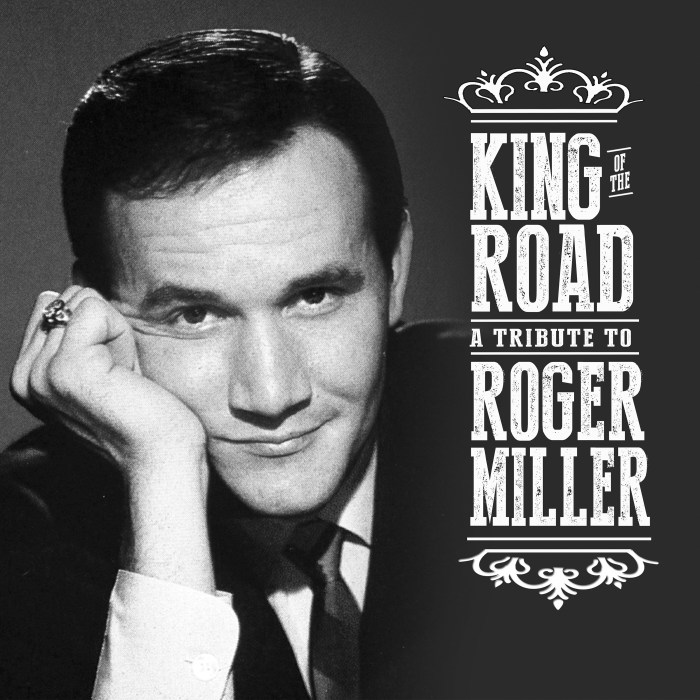
The “King of the Road” may have traded in their vintage car for a sleek laptop, but the spirit of adventure and the yearning for freedom remain the same. Whether it’s a physical journey across continents or a digital exploration of the unknown, the “King of the Road” continues to inspire us to break free from our comfort zones and embrace the open road, whatever form it may take.
Question & Answer Hub
What is the origin of the phrase “King of the Road”?
The phrase “King of the Road” has a long history, dating back to the 19th century. It was originally used to describe itinerant workers, such as cowboys and railroad workers, who traveled from town to town in search of work.
Who are some iconic “Kings of the Road” in popular culture?
Some iconic “Kings of the Road” in popular culture include Dean Moriarty from Jack Kerouac’s “On the Road,” the characters in the movie “Easy Rider,” and even modern-day influencers who document their travels on social media.
Is the “King of the Road” archetype still relevant today?
Absolutely! While the modern world may be more digital and interconnected, the desire for adventure, freedom, and a break from routine remains strong. The “King of the Road” archetype continues to resonate with people who are looking for new experiences and a sense of self-discovery.

